Hood Family Crest, Coat of Arms & Hood Name Origin
|
|
|
|
|
| Return to Home page | Bookmark this page | Link to this page | Send a Hood Postcard |
| Find Your Name | ||||||||
| A | B | C | D | E | F | G | H | |
| I | J | K | L | M | N | O | P | |
| Q | R | S | T | U | V | W | X | |
| Y | Z | |||||||
Hood Family Crest


Origin of the Name Hood
The ancient history of the name Hood was found in the allfamilycrests.com archives.
Over the centuries Surnames developed a wide number of variants. Different spellings of the same name can be traced back to an original root. Additionally when a bearer of a name emigrated it was not uncommon that their original name would be incorrectly transcribed in the record books at their new location. Surnames were also often altered over the years based on how they sounded phonetically and depending on the prevailing political conditions it may have been advantageous to change a name from one language to another.
Variants of the name Hood
include O'Hood, Mahood and McHood. This name in Irish is O'hUid and the latter variants are anglicized forms of this. This sept came from Ulster . A sept or clan was a collective term describing a group of persons whose immediate ancestors bore a common surname and inhabited the same territory. They were hereditary bards to the O'Neills of Clandeboy and produced several mediaeval Gaelic Poets who are mentioned in the Annals. Hood and Mahood are found mostly in Counties Down and Antrim. The name Hudde is an earlier form of Hood which goes back to the thirteenth century. Several of the name are found in the Justiciary Rolls and Ormond Deeds in County Tipperary in the year 1297 and one of their homes in the Cashel area is called Huddeston. By the seventeenth century they were numerous in Counties Kilkenny and Wexford. A person of note was a John Hood (1720-1722) from Donegal who invented Hood's compass theodolite. The name Hood can also be of English origin.
The Hood coat of arms came into existence centuries ago. The process of creating coats of arms (also often called family crests) began in the eleventh century although a form of Proto-Heraldry may have existed in some countries prior to this. The new art of Heraldry made it possible for families and even individual family members to have their very own coat of arms, including all Hood descendants.
|
WONDERFUL GIFTS FOR EVERY OCCASION
Show Off Your Heritage With Our Range Of Top Class Gifts For Your Family Name! VERY LIMITED TIME OFFER: FREE DELIVERY!!! |
||
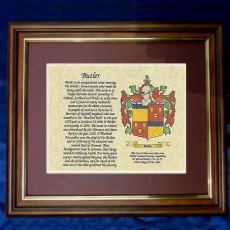 Parchment Prints: Framed, Unframed, Perfect  |
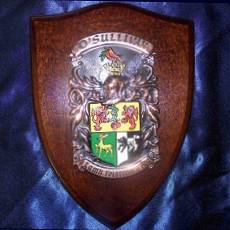 Researched Hand-Painted Plaques & Shields  |
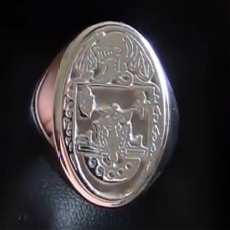 Incredible Hand-Engraved Signet & Seal Rings  |
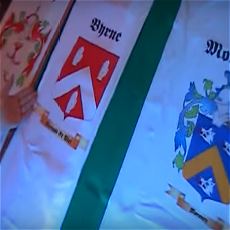 Get your Family Crest Flag, on Ireland or White background!  |
 Personalized Coffee Mugs Make Thoughtful Personalized Gifts  |
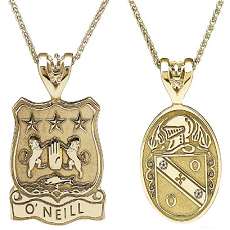 Engraved Pendants in Gorgeous Gold or Stylish Silver.  |